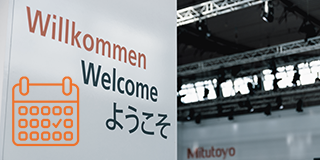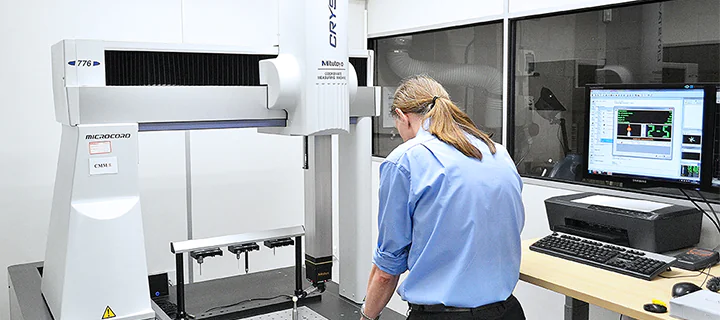- Nederlands, Belgique / België
- Česky, Česká republika
- Deutsch, Deutschland
- Español, España
- Português, Portugal
- English, Europe
- Français, France
- Italiano, Italia
- Magyar, Magyarország
- Nederlands, Nederland
- Deutsch, Österreich
- Polski, Polska
- Română, România
- Français / Deutsch, Suisse / Schweiz
- Svenska, Sverige
- Suomeksi, Suomi
- Türkçe, Türkiye
- English, United Kingdom
- Slovenská, Slovak
-
Worldwide


 Welkom bij Mitutoyo Nederland, België en Danmark
Welkom bij Mitutoyo Nederland, België en Danmark
- Alle Product Highlights
- Nieuwe SJ-220
- Nieuwe QuantuMike
- LEGEX Takumi
- Measurlink 10
- HR-600 Series
- TAGLENS
- MCOSMOS 5
- Crysta Apex V
- Formtracer Avant
- MiSTAR 555
- Schuifmaten
- Bluetooth Data Communicatie
- Profielprojector PJ Plus
- QuickVision Pro
- Alle Producten per Industrie
- MeasurLink 10
- MeasurLink 10
- Medical
- Automotive
- Aerospace
- Energy
- Gen. Manufacturing
- Electronics
- Case Studies
- Alle Handmeetgereedschappen
- Schuifmaten
- Schroefmaten
- Binnenmeetinstrumenten
- Diepte meetinstrumenten
- Hoogtemeters
- Meetklokken en Snelopnemers
- Hulpstukken en diversen
- Kalibratie instrumenten
- Eindmaten
- Alle CMM
- Kleine en middelgrote CMM's
- CMMs met grote afmetingen
- In-Line en werkvloer CMMs
- CMM Tastsystemen
- Styli en accessoires
- Opspansystemen
- KMG behuizing
- CMM Software
- Alle Vision
- 2D Vision Meetsystemen Quick Image
- Manueel 3D Vision Meetsystemen Quick Scope
- 3D CNC Vision Meetsystemen Quick Vision
- 3D CNC Multisensor Meetsystemen Quick Vision
- Serie 365 - CNC Visionmeetsysteem
- 3D CNC Meetsystemen voor Micro Geometrieën
- Vision System Software
- Objectieven en kalibratiekaarten
- Alle Optisch
- Loepen
- Profiel Projectoren
- Meetmicroscopen
- Microscoop Units
- Oculairs en Objectieven
- TAGLENS
- Illumination Units
- Alle Hardheid
- Portable Hardness Testers
- Combination Testers
- Vickers Testers
- Automatic Vickers Testers
- Micro-Vickers Testers
- Hardness Testing Software
- Reference materials and indenters
- Alle Sensoren
- Meettasters
- Lage meetkracht meetinstrument
- Tellers en uitleeseenheden
- Laser Scan Micrometers
- Surface Measure
- Sensor Management Software
- Schuifmaten
- Digitale schuifmaten
- Schuifmaten voor speciale doeleinden
- Analoge schuifmaten
- Schuifmaat accessoires
- Schroefmaten
- Digimatic schroefmaten & Analoge schroefmaten
- Accessoires voor schroefmaten
- Inbouwschroefmaten
- Accessoires voor inbouwschroefmaten
- Binnenmeetinstrumenten
- Binnenmeetinstrumenten
- Binnenmeettasters
- Accessoires voor binnenmeetinstrumenten
- Meetklokken en Snelopnemers
- Digitale meetklok
- Accessoires voor meetklokken
- Zwenktaster
- Meetklok
- Accessoires voor meetklokken
- Diktemeter, dieptemeter
- Hulpstukken en diversen
- Statieven
- Precisie spanklemmen
- Vlakplaten en sinusplaten
- Hoekmetingen en raamwaterpassen
- Voelermaten en linialen
- Eindmaten
- Stalen eindmatensets
- Stalen losse eindmaten
- CERA eindmatensets
- CERA keramische losse eindmaten
- Speciale eindmaten
- Accessoires voor eindmaten
- Kleine en middelgrote CMM's
- CRYSTA-Apex V - 500, 700, & 900 Series
- CRYSTA-Apex V - 1200 Series
- CRYSTA-Apex V - 1600 & 2000 Series
- CRYSTA-Apex EX Series for REVO
- STRATO-Apex - 500, 700, & 900 Series
- STRATO-Apex - 1600 Series
- LEGEX Series
- Styli en accessoires
- Styli Kits
- Rechte tasters
- Diamant Tasters
- IJkkogel Keramiek Ø10,0 mm
- Tasters voor bewerkingsmachines
- Ster Tasters
- Tasters voor Ster Tasters
- Cilinder Tasters
- Schijf Tasters
- Tip Tasters
- Verlengstukken
- Houders
- Adapters
- Verbindingstukken
- Bevestiging voor taster onderdelen
- Gereedschappen voor Tasters
- StyliCleaner
- Opspansystemen
- Fixturing Kits
- Base Plates
- Build-up Components
- Positioning & Stopper Components
- Profile Components
- Base Components
- Clamping Components
- Adapters
- Slider Components
- Racks
- 3D CNC Vision Meetsystemen Quick Vision
- Quick Vision ACTIVE
- Quick Vision APEX / HYPER
- Quick Vision ACCEL
- Quick Vision ULTRA
- Profiel Projectoren
- Profiel Projector PJ Serie
- Profiel Projector PV Serie
- Profiel Projector PH Serie
- Data Processor QM-Data
- Accessories
- Meetmicroscopen
- TM Series Gen. B
- MF Series Gen. D
- MF-U Series Gen. D
- Illumination Sources
- Vision Unit
- M2 Software
- QSPAK-VUE Software
- Oculairs en Objectieven
- ML-Series Objectives
- Brightfield Observation Objectives
- Brightfield/Darkfield Observation Objectives
- NIR Objectives
- NIR LCD Objectives
- NUV Objectives
- NUV LCD Objectives
- UV Objectives
- UV LCD Objectives
- Oppervlakte ruwheid
- Surftest SJ-210
- Surftest SJ-310
- Surftest SJ-410
- Surftest SJ-500
- Surftest SV-2100
- Surftest SJ-500P
- Surftest SV-2100P
- Formtracer Avant FTA-S3000
- Surftest Extreme SV-3000CNC
- Surftest Extreme SV-M3000CNC
- Oppervlakte ruwheid & Contour
- Formtracer Avant FTA-D3000 / FTA-D4000 Series
- Formtracer CS-3300
- Formtracer Extreme SV-C4500CNC
- Formtracer Extreme SV-C4500CNC HYBRID Type 1
- Formtracer Extreme CS-5000CNC and CS-H5000CNC
- Portable Hardness Testers
- Impact Type Hardness Testing Unit HARDMATIC HH-411
- Digital and Analogue Durometers HARDMATIC HH-300
- Combination Testers
- Rockwell HR-200/300/400
- Rockwell, Rockwell Superficial, Brinell Hardness Tester HR-530 and HR-600
- Rockwell Automatic Hardness Testing HR-600
- Automatic Vickers Testers
- Automatic Micro-Vickers hardness testing systems
- Automatic Vickers hardness testing systems
- Reference materials and indenters
- Hardness reference materials
- Hardness indenters and replacement balls
- Meettasters
- ABSOLUTE Digimatic Linear Gauge LGS Series
- Air Drive Unit
- ABSOLUTE Digimatic Linear Gauge LGD Series
- Standard Linear Gauge LGF Series
- Linear Gauge LG100 Series
- Linear Gauge LG200 Series
- Slim Head Linear Gauge LGK Series
- Slim Head Linear Gauge LGB Series
- Large Measuring Range Linear Gauge LG
- Laser Hologauge
- Lage meetkracht meetinstrument
- LITEMATIC VL-50 Gemotoriseerde lage meetkracht, zeer hoog nauwkeurig meetinstrument
- Tellers en uitleeseenheden
- EJ Counter and Interfaces for Linear Gauges
- EC Counter for Linear Gauges
- EG Counter for Linear Gauges
- EB Counter for Linear Gauges
- EH Counter for Linear Gauges
- EV Counter for Linear Gauges
- Display Unit for EV Counter
- Laser Scan Micrometers
- Laser Scan Micrometer Measuring Unit
- Laser Scan Micrometer Controller Unit
- Laser Scan Micrometer Interface Unit
- Laser Scan Micrometer Optional Accessories
- DRO Linear Scales en Tellers
- DRO Linear Scales AT103
- DRO Linear Scales AT103 - High Accuracy
- DRO Linear Scales AT113
- DRO Linear Scales AT113 - High Accuracy
- DRO Linear Scales AT116
- DRO ABS Linear Scales AT715
- Universal DRO KA-200 Counter
- NC Linear Scales
- NC Linear Scales ST36
- NC Linear Scales ST46-EZA
- NC Linear Scales ABS ST700
- NC Linear Scales ABS ST1300
- NC Linear Scales AT211
- NC Linear Scales ABS AT1100
- NC Linear Scales ABS AT1300
- NC Linear Scales AT402E
- NC Linear Scales AT203
- NC Linear Scales AT402E with cable A/B
- NC Linear Scales AT402E with cable C
- Opbouwlinialen
- Horizontal ABSOLUTE Scale Coolant Proof IP66
- Horizontal ABSOLUTE Scale Standard
- Horizontal ABSOLUTE Scale Measurement Direction Switching
- Horizontal ABSOLUTE Scale Diameter Function
- Vertical ABSOLUTE Scale Standard
- Vertical ABSOLUTE Scale Measurement Direction Switching
- Vertical ABSOLUTE Scale Diameter Function
- Signaal kabels
- USB Input Tool Direct Kabel
- Digimatic Data Kabels
- Verlengkabels voor Digimatic Kabels
- Draadloze communicatie
- Wireless Communication System U-WAVE
- U-WAVE Bluetooth
- U-WAVE-T Connection Cables and Connection Units
- Interfaces
- USB Input Tool
- DMT-3T / FS2 USB
- DMX-1 USB
- DMX-2 S
- DMX-2 USB
- DMX-3 USB
- MUX-10F
- DMX-8/2
- DMX-16 / DMX-16C
- DMX-0-1 USB / DMX-3-2 USB
- Digimatic Interface MIG
 Original Equipment Manufacturers (OEM)
Original Equipment Manufacturers (OEM)
Mitutoyo OEM can address missing expertise or resources by supplying you with our renowned Metrology equipment that seamlessly integrates into your products.
 Aerospace
Aerospace
Complex aerospace applications need fast, extremely precise quality control to ensure accurate assemblies. See how Mitutoyo makes it happen.
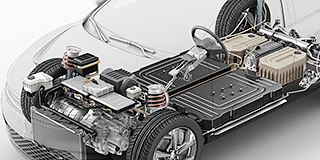 Automotive
Automotive
The automotive industry continues to innovate, and Mitutoyo delivers the advanced inspection and scanning capabilities to help manufacturers achieve ongoing production
 Energy
Energy
Make critical equipment components for oil and gas, solar, wind, or nuclear as precise as possible with advanced metrology solutions from Mitutoyo.
 Medical
Medical
Boast unmatched accuracy and reliability for diagnostic and therapeutic devices, pharmaceutical goods, and countless other highly sensitive medical engineering applications with leading precision metrology solutions.
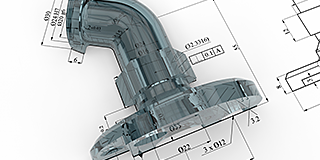 Gen. Manufacturing
Gen. Manufacturing
Ensure high repeatability and rigorous quality control with form measurement solutions, coordinate measuring machines and precision measuring tools from Mitutoyo.
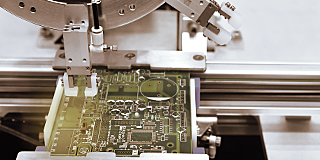 Electronics
Electronics
The non-contact and vision measurement solutions from Mitutoyo bring microscopic accuracy to smaller and denser electronic components.
 Case Studies
Case Studies
For an overview of Mitutoyo's capabilities, this is no greater place to look than our marvelous collection of case studies.
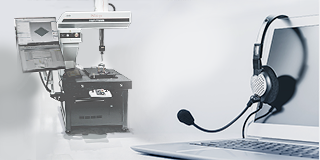 Helpdesk Support
Helpdesk Support
Gratis Helpdesk support voor klanten met service contracten
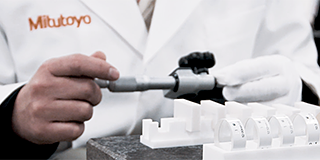 Kalibratie Services
Kalibratie Services
Laat je meetapparatuur kalibreren door een laboratorium dat je vertrouwt
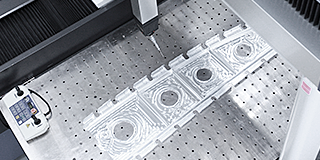 Meetservices
Meetservices
Laat uw werkstukken en onderdelen opmeten door onze Aukom gecertificeerde specialisten
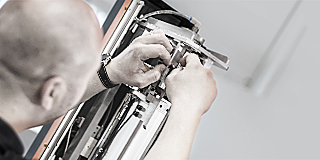 Reparaties & Reserve onderdelen
Reparaties & Reserve onderdelen
Reserveonderdelen en reparaties voor Mitutoyo-apparaten
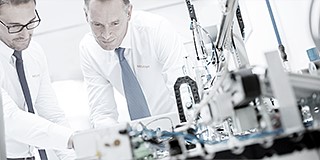 Service contracten
Service contracten
Klantgericht servicecontractconcept in onderhoud en kalibratie
 Mitutoyo Integrators
Mitutoyo Integrators
Integrating your measuring devices into existing processes made easy
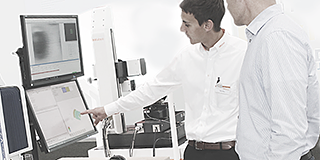 Product Demo's
Product Demo's
Online of offline, vraag vandaag nog een productdemonstratie aan
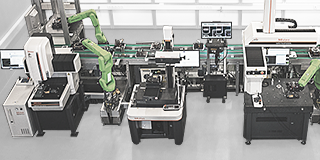 Integratie van productieautomatisering
Integratie van productieautomatisering
Maak van uw fabriek een slimme fabriek met de hulp van Mitutoyo
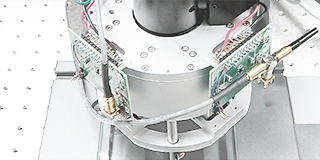 Oplossingen op maat
Oplossingen op maat
Op maat gemaakte producten voor unieke toepassingen
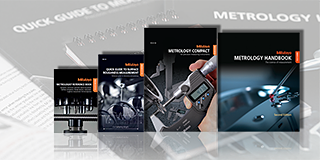 Education Pack
Education Pack
Er is geen betere hulp dan posters of lesmateriaal van Mitutoyo, perfect voor de werkplaats of het klaslokaal.
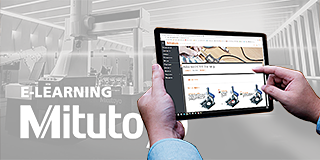 E-Learning
E-Learning
Voor degenen die geïnteresseerd zijn in metrologie biedt Mitutoyo E-Learning-cursussen om studenten, personeel of zelfs hobbyisten op te leiden.
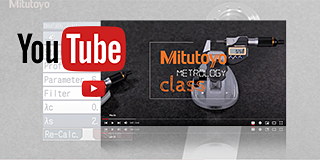 Online Material
Online Material
Als je op zoek bent naar een snelle manier om meer te leren over meten, bekijk dan onze vele instructievideo's
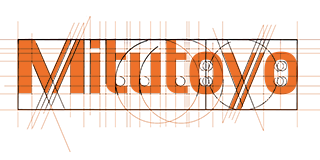 Ontdek Mitutoyo
Ontdek Mitutoyo
Het grootste metrologiebedrijf ter wereld
 Merchandise
Merchandise
Voor degenen die in stijl over de winkelvloer willen lopen, ga naar de shop en steun je favoriete merk.
 Onze promoties
Onze promoties
Bekijk hier of we een aantrekkelijke promotie voor je hebben.
 Alle nieuwsberichten
Alle nieuwsberichten
Lees hier meer nieuws over Mitutoyo Nederland, België en Denemarken. Deze pagina wordt regelmatig vernieuwd.
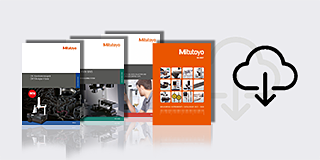 Product informatie
Product informatie
Bekijk en download onze catalogus, productbrochures en meer
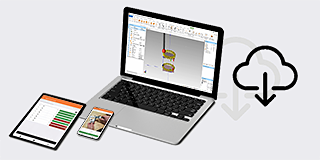 Software
Software
Download onze software en updates gemakkelijk en snel
 Verklaringen van conformiteit
Verklaringen van conformiteit
Hier kun je de volledige versies voor de EU en het VK downloaden
 Gratis wallpapers
Gratis wallpapers
Download hier gratis de officiële wallpapers van Mitutoyo
 Mitutoyo Merk Communicatie Materialen
Mitutoyo Merk Communicatie Materialen
Hulpmiddelen voor Mitutoyo-medewerkers en externe leveranciers
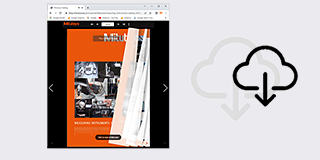 Online Catalogus
Online Catalogus
Bekijk ons uitgebreide assortiment in onze online catalogus!
-
Producten
- Terug Producten
- Producten
- Product Highlights
-
Producten per Industrie
- Terug Producten per Industrie Alle Producten per Industrie
- MeasurLink 10
- MeasurLink 10
- Medical
- Automotive
- Aerospace
- Energy
- Gen. Manufacturing
- Electronics
- Case Studies
-
Handmeetgereedschappen
- Terug Handmeetgereedschappen Alle Handmeetgereedschappen
- Schuifmaten
- Schroefmaten
-
Binnenmeetinstrumenten
- Terug Binnenmeetinstrumenten Binnenmeetinstrumenten
- Binnenmeetinstrumenten
- Binnenmeettasters
- Accessoires voor binnenmeetinstrumenten
-
Diepte meetinstrumenten
- Terug Diepte meetinstrumenten Diepte meetinstrumenten
- Diepte schroefmaat
- Diepteschuitmaat
- Diepteschuifmaat accessoires
- Hoogtemeters
- Meetklokken en Snelopnemers
- Hulpstukken en diversen
-
Kalibratie instrumenten
- Terug Kalibratie instrumenten Kalibratie instrumenten
- Hoogteschroefmaat Height Master
- Stappeneindmaat
- Kalibratie apparatuur
- Eindmaten
-
CMM
- Terug CMM Alle CMM
- Kleine en middelgrote CMM's
-
CMMs met grote afmetingen
- Terug CMMs met grote afmetingen CMMs met grote afmetingen
- CARB-Series
-
In-Line en werkvloer CMMs
- Terug In-Line en werkvloer CMMs In-Line en werkvloer CMMs
- MACH Ko-ga-me
- MACH 3A 653
- MACH V 9106
- MiSTAR 555
-
CMM Tastsystemen
- Terug CMM Tastsystemen CMM Tastsystemen
- SurfaceMeasure
- REVO
- SP80
- TP7M
- PH20
-
Styli en accessoires
- Terug Styli en accessoires Styli en accessoires
- Styli Kits
- Rechte tasters
- Diamant Tasters
- IJkkogel Keramiek Ø10,0 mm
- Tasters voor bewerkingsmachines
- Ster Tasters
- Tasters voor Ster Tasters
- Cilinder Tasters
- Schijf Tasters
- Tip Tasters
- Verlengstukken
- Houders
- Adapters
- Verbindingstukken
- Bevestiging voor taster onderdelen
- Gereedschappen voor Tasters
- StyliCleaner
- Opspansystemen
-
KMG behuizing
- Terug KMG behuizing KMG behuizing
- CMM Behuizingen
-
CMM Software
- Terug CMM Software CMM Software
- MiCAT Planner
- MCOSMOS
- MAFIS Express
- MSURF
-
Vision
- Terug Vision Alle Vision
-
2D Vision Meetsystemen Quick Image
- Terug 2D Vision Meetsystemen Quick Image 2D Vision Meetsystemen Quick Image
- Quick Image
- Quick Image Software
-
Manueel 3D Vision Meetsystemen Quick Scope
- Terug Manueel 3D Vision Meetsystemen Quick Scope Manueel 3D Vision Meetsystemen Quick Scope
- Manual Quick Scope
- Quick Scope Software
-
3D CNC Vision Meetsystemen Quick Vision
- Terug 3D CNC Vision Meetsystemen Quick Vision 3D CNC Vision Meetsystemen Quick Vision
- Quick Vision ACTIVE
- Quick Vision APEX / HYPER
- Quick Vision ACCEL
- Quick Vision ULTRA
-
3D CNC Multisensor Meetsystemen Quick Vision
- Terug 3D CNC Multisensor Meetsystemen Quick Vision 3D CNC Multisensor Meetsystemen Quick Vision
- Quick Vision Hybrid
- Quick Vision WLI
-
Serie 365 - CNC Visionmeetsysteem
- Terug Serie 365 - CNC Visionmeetsysteem Serie 365 - CNC Visionmeetsysteem
- MiSCAN APEX 404
- MiSCAN HYPER 302
- MiSCAN HYPER 404
-
3D CNC Meetsystemen voor Micro Geometrieën
- Terug 3D CNC Meetsystemen voor Micro Geometrieën 3D CNC Meetsystemen voor Micro Geometrieën
- UMAP Vision Systems
- UMAP Software
- Vision System Software
- Objectieven en kalibratiekaarten
- Optisch
- Vorm
-
Hardheid
- Terug Hardheid Alle Hardheid
- Portable Hardness Testers
- Combination Testers
-
Vickers Testers
- Terug Vickers Testers Vickers Testers
- Vickers Hardness Testing Machine HV-110/120
- Automatic Vickers Testers
-
Micro-Vickers Testers
- Terug Micro-Vickers Testers Micro-Vickers Testers
- Micro-Vickers Hardness Testing Machines HM-210/220
-
Hardness Testing Software
- Terug Hardness Testing Software Hardness Testing Software
- AVPAK
-
Reference materials and indenters
- Terug Reference materials and indenters Reference materials and indenters
- Hardness reference materials
- Hardness indenters and replacement balls
-
Sensoren
- Terug Sensoren Alle Sensoren
-
Meettasters
- Terug Meettasters Meettasters
- ABSOLUTE Digimatic Linear Gauge LGS Series
- Air Drive Unit
- ABSOLUTE Digimatic Linear Gauge LGD Series
- Standard Linear Gauge LGF Series
- Linear Gauge LG100 Series
- Linear Gauge LG200 Series
- Slim Head Linear Gauge LGK Series
- Slim Head Linear Gauge LGB Series
- Large Measuring Range Linear Gauge LG
- Laser Hologauge
-
Lage meetkracht meetinstrument
- Terug Lage meetkracht meetinstrument Lage meetkracht meetinstrument
- LITEMATIC VL-50 Gemotoriseerde lage meetkracht, zeer hoog nauwkeurig meetinstrument
- Tellers en uitleeseenheden
- Laser Scan Micrometers
-
Surface Measure
- Terug Surface Measure Surface Measure
- Surface Measure 1008S
- Accessories
- Sensor Management Software
-
Digital Scales
- Terug Digital Scales Alle Digital Scales
- DRO Linear Scales en Tellers
-
NC Linear Scales
- Terug NC Linear Scales NC Linear Scales
- NC Linear Scales ST36
- NC Linear Scales ST46-EZA
- NC Linear Scales ABS ST700
- NC Linear Scales ABS ST1300
- NC Linear Scales AT211
- NC Linear Scales ABS AT1100
- NC Linear Scales ABS AT1300
- NC Linear Scales AT402E
- NC Linear Scales AT203
- NC Linear Scales AT402E with cable A/B
- NC Linear Scales AT402E with cable C
-
Opbouwlinialen
- Terug Opbouwlinialen Opbouwlinialen
- Horizontal ABSOLUTE Scale Coolant Proof IP66
- Horizontal ABSOLUTE Scale Standard
- Horizontal ABSOLUTE Scale Measurement Direction Switching
- Horizontal ABSOLUTE Scale Diameter Function
- Vertical ABSOLUTE Scale Standard
- Vertical ABSOLUTE Scale Measurement Direction Switching
- Vertical ABSOLUTE Scale Diameter Function
-
Data Management
- Terug Data Management Alle Data Management
-
Data Management Software
- Terug Data Management Software Data Management Software
- MeasurLink 10
- USB-ITPAK
-
Mini Processors
- Terug Mini Processors Mini Processors
- Digimatic Mini Processor DP-1VA LOGGER
- Signaal kabels
- Draadloze communicatie
- Interfaces
-
Timerbox, Digimatic Switch Box, Tolerance Box
- Terug Timerbox, Digimatic Switch Box, Tolerance Box Timerbox, Digimatic Switch Box, Tolerance Box
- Digimatic Timerbox
- Digimatic Data Logger
- Digimatic Switch Box
- Digimatic Tolerance Box
-
Software
- Terug Software Alle Software
-
CMM Software
- Terug CMM Software CMM Software
- MiCAT Planner
- MCOSMOS
- MAFIS-Express
- MSURF
- Vision System Software
-
FMI Software
- Terug FMI Software FMI Software
- Formtracepak
- Roundpak
- Software voor hardheidstester
- Sensor Management Software
-
Kwaliteits Management Software
- Terug Kwaliteits Management Software Kwaliteits Management Software
- Measurlink 10
- USB-ITPAK
- Industrieën
- Service
- Smart Factory
-
Educatie
- Terug Educatie
- Educatie
- Education Pack
- E-Learning
- Online Material
- Over ons
-
Nieuws
- Terug Nieuws
- Nieuws
- Onze promoties
-
Evenementen
- Terug Evenementen
- Evenementen
-
Alle nieuwsberichten
- Terug Alle nieuwsberichten
- Alle nieuwsberichten
- MITUTOYO VERSTERKT MET R&D DE EIGEN MARKTGEDREVEN AANPAK
- Downloads
Few companies involved in the manufacture of aero engine components can boast a heritage that stretches back to the dawn of the jet engine age. One such concern is JJ Churchill.
Mitutoyo assist JJ Churchill with Pace & Precision
Founded by Walter Churchill on Christmas Day 1937, Churchill Components, as the company was originally known, began life as a supplier of machined engine parts to Armstrong-Siddeley. Two years after the start of WW 2 the company relocated to its current, although now much expanded, site in Market Bosworth.
As Walter Churchill had worked closely with Sir Frank Whittle in the 1930s, the transition to gas turbine work was a natural step and compressor blades became a core product from the mid-1940s. The Aerospace sector remains JJ Churchill’s principal marketplace and the manufacture of compressor blades its main activity, although the company has diversified and manufactures for the Defence, Diesel Engines, Power Generation and Nuclear industries.
In addition to being a renowned specialist in the production of gas turbine blades from forgings and castings, JJ Churchill has developed a high level of expertise in the machining of blades from solid billet. Now, when possible, rather than machining large batches of forgings and castings to size, state-of-the-art high-speed 5-axis machining centres are used to machine blades in a single set-up from solid billet. The adoption of machining from billet procedures has led to impressive time savings; it has also slashed lead times and increased overall efficiencies. In addition, when compared to forged and cast blades, blades that are machined from solid can be held to much more demanding dimensional tolerances.
To ensure that the impressive efficiencies and shorter lead times gained by its innovative production methods are not squandered, JJ Churchill relies on a range of high-speed, Mitutoyo CNC Coordinate Measuring Machines (CMMs) to ensure rapid and precise blade inspection.
The company’s most recent CMM purchase means that it now has nine, various capacity Mitutoyo Crysta Apex CMMs, each fitted with Renishaw SP 25 analogue scanning probes and running Mitutoyo MCOSMOS CMM software. To enable the accurate evaluation of aerofoil geometry each CMM utilises Mitutoyo’s Mafis aerofoil analysis software.
So that CMM output is not compromised all programming is done offline which enables new products to be introduced with minimal CMM down time.
Bruce Tarry, JJ Churchill Quality Technical Manager explained. “JJ Churchill’s quality management system is accredited to BS EN ISO9001. As we operate in a wide variety of challenging markets and because of the nature of our customers, we retain a range of specialist NADCAP process approvals, we also have a variety of customer-specific accreditations.
“In addition to other checks, our compressor blades undergo 100% dimensional inspection and are measured to the highest standards of precision. Given our production volumes and the complex, variable freeform geometries involved, our blade inspection function requires a system that delivers both speed and high levels of accuracy.
“As we were aware of the progress made in the field of CMMs and compressor blade related software, and in accordance with our continuous improvement policy, in 2008 we investigated the available high specification CMMs that had the required levels of precision and speed to keep pace with our increasing compressor blade output.
“Having considered several other machine and software packages, we decided that Mitutoyo’s Crysta-Apex CMM, with MCOSMOS and Mafis aerofoil inspection software, represented the ideal CMM and software combination. The Crysta-Apex scored highly on all of our required criteria, in addition to having the high accuracy specification we needed, its scanning capability meant that the CMM could considerably speed-up the throughput of our blade inspection.
“Because of the technically demanding nature of our work, as with our machine tools purchases, in addition to sourcing the most cutting-edge inspection technology available, we always ensure that any chosen supplier is able to deliver the levels of service and technical back-up we require. The assurances given by Mitutoyo UK gave us the confidence to proceed.
“As our first Mitutoyo Crysta-Apex CMM proved to be a great success and given the excellent service we received from Mitutoyo UK, we soon ordered further Crysta-Apex models in a range of capacities. Our most recent purchase means that we now have nine Mitutoyo Crysta-Apex CMMs located in dedicated, environmentally sealed enclosures operating in production cells throughout our facility. As each CMM operates in relatively close proximity to the source of blade manufacturing, we are able to provide rapid, precise feed-back of measuring results using Mitutoyo’s Measurlink SPC software and to truncate our production and inspection cycles.
“Not only have each of our Crysta-Apex CMMs proved extremely accurate and fast, they have been ultra-reliable. In addition, we have benefitted from the excellent levels of service provided by Mitutoyo UK.”
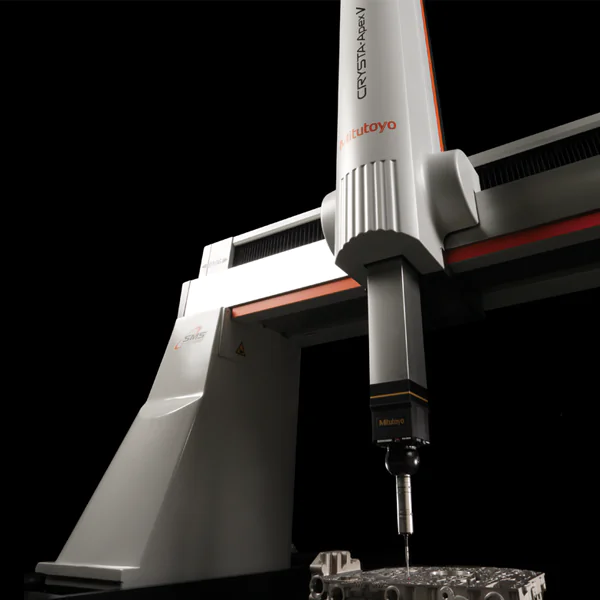
Mitutoyo Crysta-ApexCMMs, as used by JJ Churchill, incorporate innovative moving-bridge type machine structures and are designed and constructed using advanced lightweight materials. These features help to provide the high motion stability that enables increased scanning speeds and high accuracy.
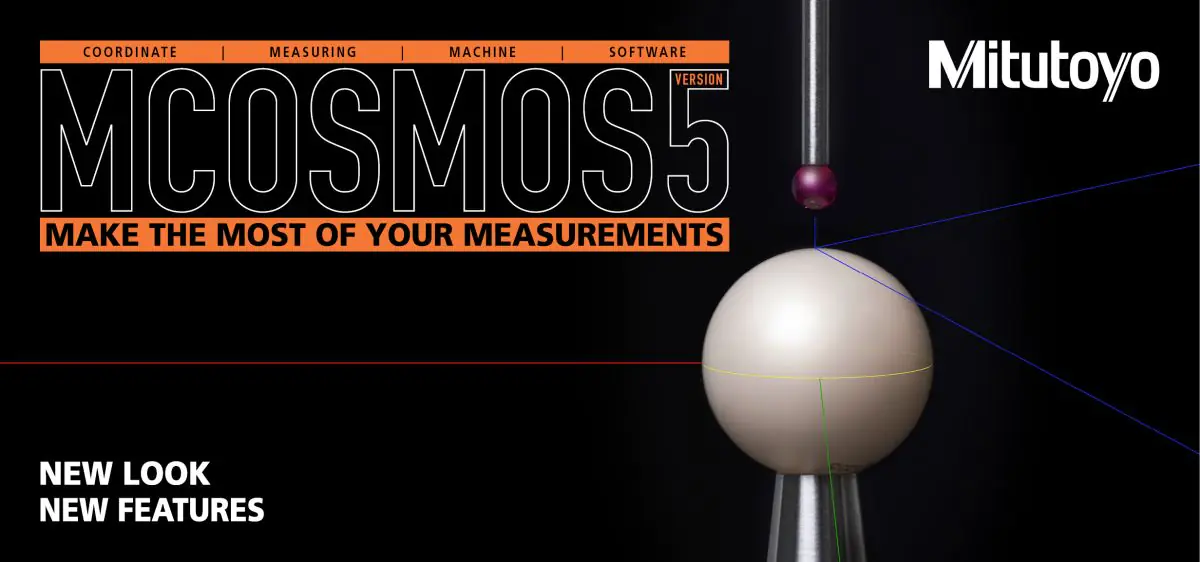
Mitutoyo’s MCOSMOS modular suite of CMM software is available to meet the simplest to the most complex measurement and analysis needs. MCOSMOS1 contains the modules needed for handling basic measurement and part-program creation while offering powerful gear analysis options. MCOSMOS2 extends the capabilities to online/offline part-program creation directly from a CAD model, and MCOSMOS3 further extends geometry handling to freeform surfaces, with an aerofoil option if required.
Measurlink provides statistical analysis of measured results in real time, as well as an offline process analyser module. The system is networked directly into JJ Churchill’s database so that an overview of all parts processed is readily available.





